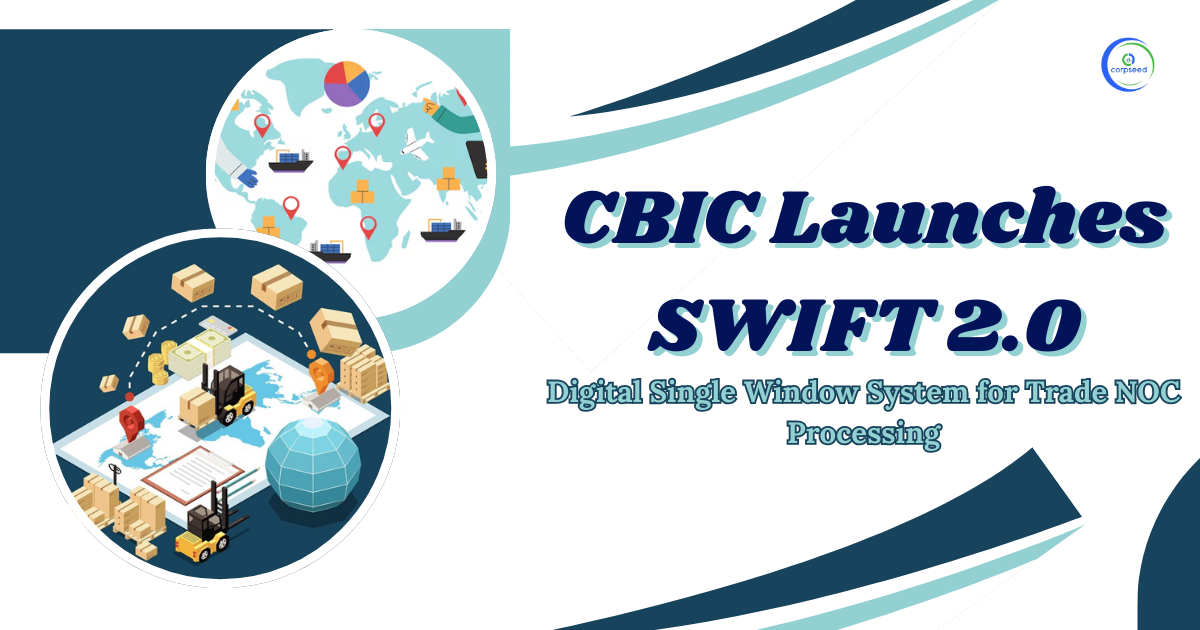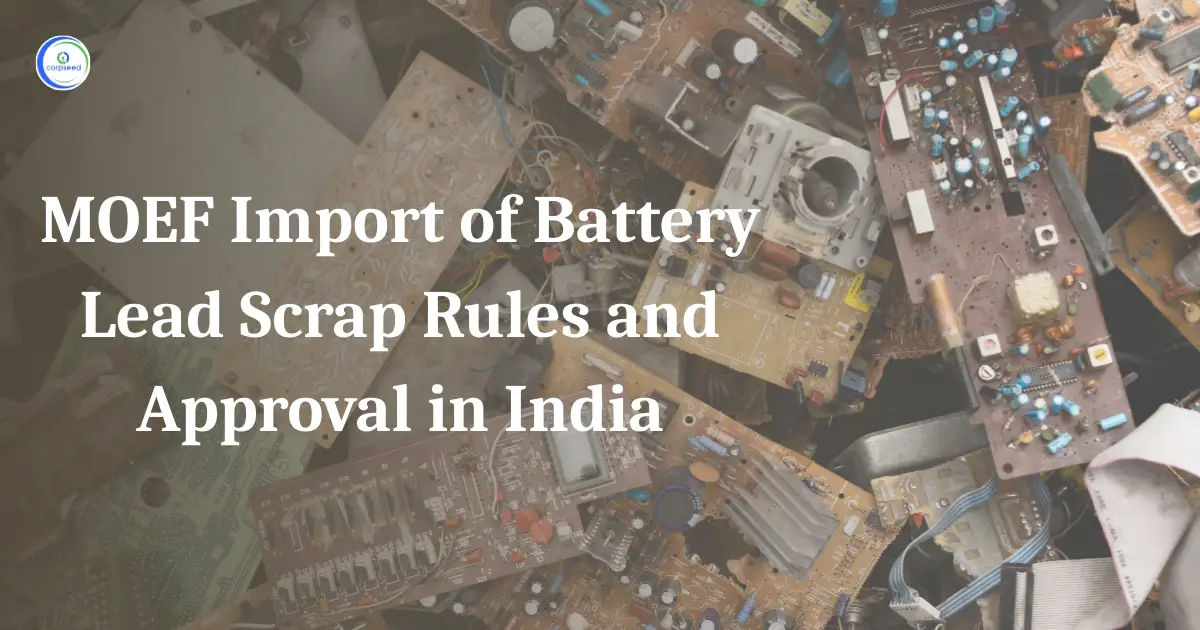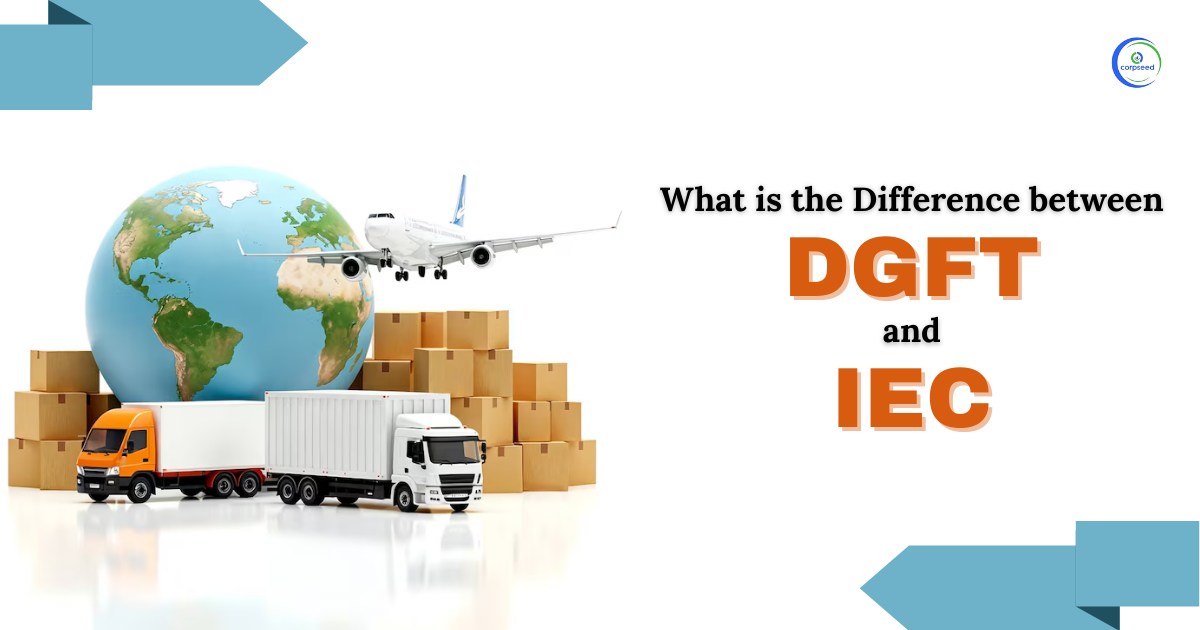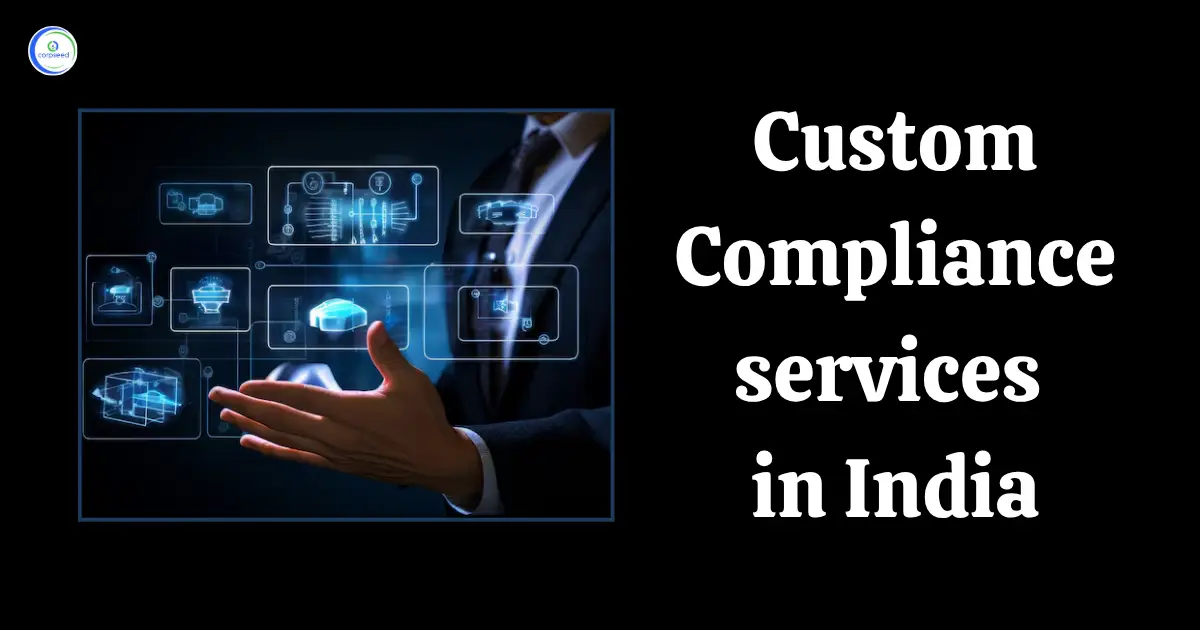Introduction
The SCMTR registration means registering entities under the Sea Cargo Manifest and Transhipment Regulations of 2018. Under these regulations introduced in 2018, the entities and stakeholders relevant to the incoming and outgoing cargo ships need to get registered. These stakeholders can only perform operations by getting SCMTR Registration. The registration ensures the lawful execution of the duties of relevant authorities and parties involved in importing and exporting goods. The regulations were notified by the CBIC which is the Central Board of Indirect Taxes and Customs and the registration process is streamlined through its centralised online portal ICEGATE.
Table of Contents
- Introduction
- Significance of SCMT Regulations 2018
- Who needs to get the SCMTR Registration?
- Who are Authorised Custodians?
- About ICEGATE Portal
- Documents to be submitted for SCMTR Registration
- Process of SCMTR Registration for Authorised Custodians Through ICEGATE Portal
- Child Users Explained under SCMTR Registration
- Endnote
--------------Blog Contact Form-------------
Significance of SCMT Regulations 2018
The new regulations of 2018 about the Sea Cargo Manifest and Transhipment bring reforms to the existing monitoring system of the incoming and outgoing ships for the Indian ports. These reforms include practising the Arrival Manifest and Departure Manifest in place of the older IGM and EGM. IGM and EGM respectively mean the Import and Export General Manifest. Apart from the general manifest, the Authorised Sea Carrier (ASC) or the Authorised Sea Agent (ASA) also need to submit the Transhipment Manifest for Arrival and Departure instead of the SMTP (Sub Manifest Transhipment Permit) and Truck Summary. Some other major features of the SCMT Regulations are as follows-
- It includes reporting all the stuff on the ship, not just things being brought in or taken out (like things moving along the same coast).
- It requires more information about each thing being reported, like how much it costs and what kind of thing it is.
- The time for reporting is advanced when the ship leaves the port.
- It makes sure we can track and trace the cargo as it moves.
- It has the provisions needed for ships that move within India.
- It captures information electronically that used to be written on paper (like the list of people on the ship).
- There is now an online form for ships coming to the port.
- SCMT Regulations have provisions to support better and faster sharing of information between the stakeholders and the authorities.
Who needs to get the SCMTR Registration?
Various stakeholders are covered under the SCMTR Registration (Sea Cargo Manifest and Transhipment Regulations 2018). The list of stakeholders includes the following-
- Authorised Sea Carrier (ASC)
- Authorised Sea Agent (ASA)
- Authorised Exporter for e-Seal (AES)
- Authorised Terminal Operator (ATO)
- Authorised Transhipper (ATP)
- Authorised Custodian (ACU)
- Authorised Notified Carrier (ANC)
- Authorised Persons of all the above
These entities need to get the SCMTR Registration. If there are any subordinates, agents or any other authorised persons of these parties then they also need to register for the same.
Who are Authorised Custodians?
When the goods are imported into India, the importer needs to fulfil several legal obligations and compliances to clear their goods from the customs department. It is only after the fulfilment of such necessities that the importers are allowed to take their goods away from the port either after clearance for home consumption or for export or transferred to the warehouse. The Customs clearance process is a complicated operation and sometimes takes more than usual time. This is why there is a need for a safe and secure place to keep the imported goods until they are cleared by customs. This is where the authorised custodians come into the game. They play an important role in the import procedure and keep the imported goods in their possession. They are called authorised custodians and need to get the SCMTR Registration.
About ICEGATE Portal
CBIC had introduced a centralised online portal for registration and providing permissions online to various parties involved in the import and export procedure. The online mechanism of administering the port operations makes the process easy and convenient for both the regulators and the importers. ICEGATE stands for Indian Customs Electronic Data Interchange Gateway. For SCMTR Registration, the stakeholders can submit the application to the relevant authority through the ICEGATE portal.
Documents to be submitted for SCMTR Registration
When you are applying for the SCMTR Registration, you need to be prepared with the following documents as a copy shall be uploaded to the portal at the time of SCMTR Registration for authorised custodians-
- Water Bill
- Telephone Bill
- Income Tax Assessment Order
- Gas Connection Bill
- Election Commission Photo ID
- Aadhaar ID
- Rental Agreement
- A scanned copy of the Passbook
- Valid Passport
- Self Declaration on Customs Cases
- MoU Agreement with Shipping Line
Process of SCMTR Registration for Authorised Custodians Through ICEGATE Portal
According to the Sea Cargo Manifest and Transhipment Regulations 2018, anyone who's doing the jobs of IEC Holders, Authorized Carriers (like Authorized Sea Carriers or Authorized Transhippers), Authorized Sea Agents, Authorised Custodians, Terminal Operators, or Authorized Notified Carriers needs to get approved again by the appropriate authority. This approval process happens entirely online, and it's done without meeting anyone in person. To apply for approval, you have to go to the ICEGATE Portal and fill out the relevant application form. The process involves the following steps-
- ICEGATE Portal Registration
Before you can register for SCMTR, you need to sign up at ICEGATE and get an ICEGATE ID. If you're new, you can go to www.icegate.gov.in. Enter relevant details in the signup form and click submit. After successful registration, you will get the login ID to the ICEGATE portal which will be used to complete the further SCMTR Registration.
- Application Submission
After completing the registration process, users must submit their online applications within their respective logins to conduct transactions under SCMT Regulations. Existing ICEGATE users are also required to submit the same application. Different roles will necessitate the submission of separate applications with different Entity Types.
- Approval of SCMTR Registration
After successful submission, the application will be communicated to the Jurisdictional Officer for verification automatically. After the verification process, the respective jurisdictional officer will approve your SCMTR Registration for various stakeholders including the authorised custodian.
Child Users Explained under SCMTR Registration
The registered users of ICEGATE can access various services available on the ICEGATE web portal and the customized dashboard. The facility of creating child users on ICEGATE is intended to extend these services to the authorized representatives or employees of the registered users as well as to enable businesses to delegate their ICEGATE-related work to the child users. Every person authorised to perform tasks under authority should sign up as a Child User of the main registered group. For example, if a Shipping Line company is signed up as the main one, everyone who's allowed to operate on behalf of that company should also sign up as part of that main group, if they have not already. Then only they can perform on behalf of the parent authority.
Endnote
As the Indian customs procedures continue to modernize and streamline, the significance of the Sea Cargo Manifest and Transhipment Regulations of 2018 becomes more apparent. The SCMTR Registration process, facilitated through the user-friendly ICEGATE portal, marks a pivotal step toward enhancing transparency, security, and efficiency in the import and export operations. By ensuring compliance from various stakeholders, including Authorised Sea Carriers, Authorised Custodians, and Agents, the regulations pave the way for a more accountable and seamless trade environment. With these advancements, India solidifies its position as a leader in fostering a robust and responsible international trade ecosystem, ultimately contributing to the nation's economic growth and global standing.
This portion of the site is for informational purposes only. The content is not legal advice. The statements and opinions are the expression of author, not corpseed, and have not been evaluated by corpseed for accuracy, completeness, or changes in the law.
BOOK A FREE CONSULTATION
Get help from an experienced legal adviser. Schedule your consultation at a time that works for you and it's absolutely FREE.


_Application_Procedure.webp)






